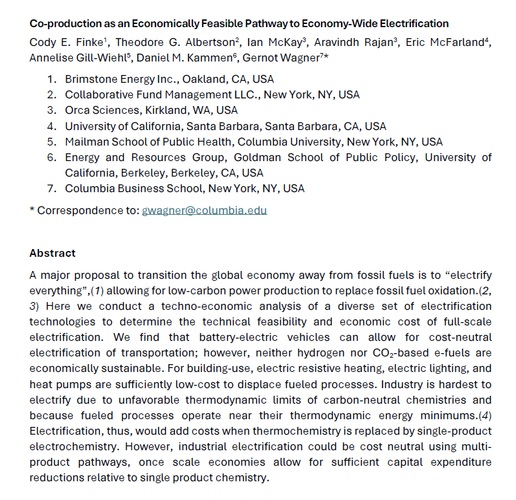Economic Policy Analysis
Spring 2020

How to make decisions in light of pervasive uncertainties? How to think about incentive structures faced by decision-makers, and think through unintended consequences of one’s decisions?
Economics, for better or worse, is organized common sense. No more, also no less. This class makes use of the toolkit given to us by economics and applies them to real-world policy problems.
Given my own background, the class will focus on questions around climate, energy, and the environment, though not exclusively. In the end, we will pick examples based on how well they help us expand our toolkit and answer specific policy questions.
What to make of the precautionary principle? What can economics teach us that engineering can’t? How to deal with constant learning, experimentation, and streams of new information?
Some of the questions we will be asking have clear answers. Many don’t. The biggest question to us then often is in how far the tools economics gives us can provide objective policy advice, and at what point do normative judgments—politics—take over.
We will develop our toolkit around these and many other questions, looking to the policy world—and the news—for ideas. In doing so, we apply economic insights, some basic mathematical tools, statistical thinking, and econometrics, and borrow fundamental ideas from various other disciplines—all in the service of turning ourselves into better policy analysts and, ultimately, more astute decision makers.
Latest syllabus; midterm exam (Bloomberg Green Risky Climate column on the lessons from the midterm).


